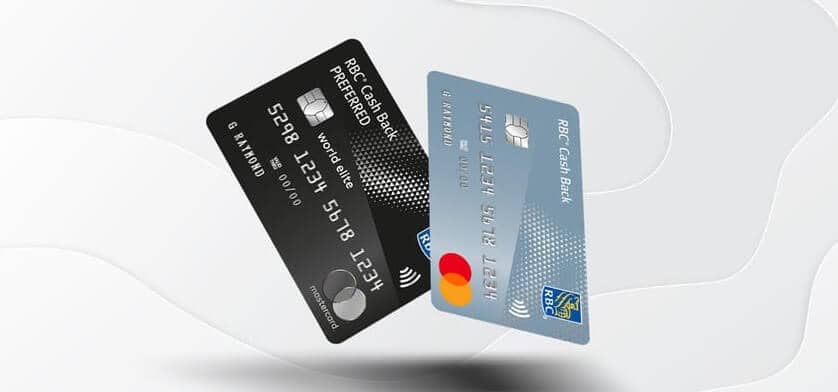
The Best Business Credit Cards in Canada: Unlocking Financial Potential
Business credit cards have become essential tools for entrepreneurs and business owners in Canada, offering a range of benefits that go beyond simple payment solutions. From managing cash flow and earning rewards to simplifying expense tracking, these financial instruments play a crucial role in the success and growth of businesses. In this essay, we will explore the best business credit cards in Canada, providing insights into their features and advantages and how they can empower business owners to make informed financial decisions.
The Significance of Business Credit Cards:
Business credit cards have evolved beyond their traditional role of facilitating transactions. They have become indispensable for Canadian businesses, regardless of size or industry. These cards offer several key benefits:
- Improved Cash Flow Management: Business owners can use credit cards to pay for expenses, allowing them to preserve cash for more strategic purposes, such as investing in growth opportunities or managing unexpected costs.
- Simplified Expense Tracking: Business credit cards provide detailed statements, making it easier to track expenses and categorize them for accounting and tax purposes. This feature streamlines financial management and minimizes the risk of errors.
- Establish and Build Credit: Business credit cards can help establish or build a business’s credit history, which is crucial for accessing financing and better credit terms in the future.
Critical Factors in Choosing the Best Business Credit Card:
Selecting the right business credit card is a crucial decision for entrepreneurs. Several factors should be considered, including:
- Interest Rates: Understanding the card’s interest rates is essential. A lower interest rate can benefit businesses that may need to carry a balance occasionally.
- Credit Limit: Ensure the card’s credit limit meets your business needs. A higher credit limit can provide greater flexibility but may require a more substantial credit history.
- Additional Features: Some business credit cards offer other features, such as travel insurance, extended purchase warranties, and comprehensive expense management tools.
The Best Business Credit Cards in Canada:
The Best Business Credit Cards provide various incentives that may assist individual entrepreneurs, partnerships, and significant corporate enterprises optimize their expenditures.
These include cash-back incentives, travel bonuses, and, most critically, a safety net for unanticipated bills. We’ve selected the top business credit cards in Canada, so you can increase your profit margins right now.
Here are the Top 12 best business credit cards in Canada:
- American Express Business Platinum Card: It offers outstanding value and specialized solutions for entrepreneurs and companies of all sizes via its extensive rewards program, broad travel perks, and business tools.
- Scotiabank Passport for Business Visa Card: One of the most excellent business credit cards in Canada is the Scotiabank Passport for Business Visa Card. It provides exceptional travel perks such as no foreign transaction costs, full travel insurance, and airport lounge access. It also offers a rewarding rewards program and useful company management tools.
- BMO CashBack Business Mastercard: The BMO CashBack Business Mastercard is one of the best business credit cards in Canada, with attractive cashback benefits on business spending. It’s a good alternative for small companies aiming to optimize their rewards, with numerous redemption possibilities, full cost management capabilities, and no annual fee for the first year.
- TD Business Travel Visa Card: The TD Business Travel Visa Card is one of Canada’s most outstanding business credit cards. It provides a versatile rewards program, travel insurance, and unique business travel incentives. It is an excellent alternative for company owners looking for dependable credit cards for their costs, thanks to its competitive features and benefits.
- RBC Avion Visa Infinite Business Card: One of the most excellent business credit cards in Canada is the RBC Avion Visa Infinite Business Card. It provides variable benefits, such as earning Avion points, which may be redeemed for travel, shopping, and other items. In addition, the card offers complete insurance coverage and special business perks.
- CIBC Aeroplan Visa Business Card: It provides extraordinary incentives and perks explicitly designed for business travelers, including Aeroplan points, travel insurance, and airport lounge access. It is a good alternative for Canadian firms due to its extensive features.
- American Express Business Edge Card: It caters to the demands of small company owners and gives outstanding value with its unique rewards program, which offers expedited gains on different business costs, flexible redemption possibilities, and beneficial advantages.
- BMO Air Miles Business Mastercard: The BMO Air Miles Business Mastercard is one of Canada’s best business credit cards. It has a strong rewards program with Air Miles that allows travel and product redemption. The card also has insurance coverage and flexible spending restrictions, making it an excellent alternative for companies.
- TD Business Solutions Visa Card: The TD Business Solutions Visa Card is widely recognized as one of Canada’s best business credit cards. It provides competitive incentives and perks, including cash back on business purchases, adjustable credit limits, and cost management tools.
- RBC Business Cash Back Mastercard: It provides cash back on all purchases, has no annual charge, and has numerous redemption choices. It’s a fantastic alternative for business owners since it includes extras like expenditure management tools and travel insurance.
- CIBC Aventura Visa for Business Card: The CIBC Aventura Visa for Business Card is one of the best business credit cards in Canada, with flexible rewards, travel advantages, and unique business bonuses. It offers outstanding value and convenience to company owners and their workers with its strong rewards program and comprehensive insurance coverage.
- Scotiabank American Express Business Card: One of the best business credit cards in Canada is the Scotiabank American Express Business Card. It provides essential spending control features and competitive incentives, including travel privileges. It is a popular option for Canadian companies due to its versatile features and solid relationship between Scotiabank and American Express.
What is a business credit card?
A business credit card is one that is intended to be used for company spending rather than personal expenses by an individual. It is a revolving credit line that a company owner and any authorized staff may use, pay off, and then use again when they need to make a business purchase but don’t have the cash immediately.
A business credit card enables companies to buy the goods they need to succeed while giving the company owner the time they may need to pay for them. A small company owner, like the leaders of significant divisions in more prominent firms, may get a business credit card.
Even if it doesn’t appear so at first, a person who does business under their name and works for themselves can qualify if they can show that their business generates income as a sole proprietorship and can manage a credit card responsibly by paying off the balance on time.
Why get a business credit card?
If their workers have regular costs that they acquire on the company’s behalf, they should also obtain a business credit card. It relieves the company owner of having to buy everything personally while allowing them to control what is purchased and keep track of their business spending more effectively.
Types of Business Credit Cards in Canada
Depending on the sort of company, an applicant may get several types of business credit cards in Canada. The following are the two most frequent types of company credit cards:
- Small Business Credit Cards: Small company credit cards often allow for a lower number of authorized users and come with cost-monitoring assistance that is confined to one online banking platform (similar to most personal cards).
- Corporate Credit Cards: Furthermore, in the event of rewards redemption, the firm retains the benefits, not the business owner or any individual cardholder.
How to Get a Business Credit Card in Canada
Business credit cards in Canada, like personal credit cards, have application restrictions, although those requirements are frequently more stringent. After meeting the basic eligibility requirements, you’ll be asked for your minimum personal income, minimum family income, minimum company revenue, and, in certain situations, minimum assets under management.
Pros and Cons of Business Credit Cards in Canada
There are a few benefits and drawbacks to having a company credit card that you should be aware of before applying.
Pros
- Separate your commercial and personal costs.
- More comprehensive protection against fraud and theft of cash
- Better cost management that personal credit cards can provide.
- You may add more authorized users without paying a charge.
- Regarding incentives, get bigger welcome bonuses, earn rates, and yearly value.
- Get rewarded for everyday business costs, including office supplies, periodic bill payments,
- Telecommunications purchases and more
- Quick and easy access to funds
- The ability to establish your company’s credit history
- When it comes to acquiring and paying for products, there is less administration.
Cons
- The possibility of unrestricted employee expenditure
- The potential to incur debt.
- All credit card purchases must be honoured and paid for.
- More vulnerable to deception.
- Charges for interest
- Unpaid bills may cause credit harm.
How Many Credit Cards Should Businesses Get?
If your company is small, you should only get as many credit cards as you can to keep track of where the money is going and when payments are due. Most small company owners have one to three credit cards. If you are a medium-sized firm, you may be able to manage additional credit cards, but only as many as will benefit you and the business. Some company owners stay organized by paying for separate business costs with multiple business credit cards, mainly if those cards offer a high earning rate for points on that specific purchase category.
Frequently Asked Questions (FAQs)
What credit score is needed for a business credit card?
Your credit score mainly determines the approval of a business credit card. Most business cards need strong or outstanding credit, defined as a credit score of 690 or above.
Can you get a business credit card with no revenue?
Credit card companies often demand applicants submit their prior year’s gross yearly income. Issuers may accept personal payments and sales predictions in the absence of revenue.
Conclusion:
Selecting a business credit card in Canada should be a strategic decision that harmonizes with a business’s financial objectives and expenditure patterns. Business credit cards are versatile financial tools that empower entrepreneurs and business owners to enhance their economic potential and achieve their business objectives. By thoughtfully evaluating the specific needs and preferences of their enterprises, Canadian businesses can identify the credit card that aligns perfectly with their unique requirements, ensuring they harness the full range of benefits and rewards that these financial tools offer.
Related Posts

Choosing the Best RBC Credit Card for Your Travel Adventuresadmin . December 13, 2023

Pros and Cons of Balance Transfer Credit Cardsadmin . May 16, 2023

How to buy Tether (USDT)admin . June 9, 2023

Top 10 best penny stocks to invest in 2024admin . November 22, 2023

Unlock Massive Cash Back Rewards: The Best Business Credit Cardsadmin . August 7, 2023

Top 12 Best Credit Cards of 2023admin . May 10, 2023

Best Credit Cards UK 2023 | Top Credit Cards inadmin . July 25, 2023

What Is XRP ? | How You Can Use Rippleadmin . June 19, 2023

Best Credit Card for Business Canada | Top Business Creditadmin . August 8, 2023
Latest Posts

Exploring the Best Cash Advance Apps of 2024 April 8, 2024

Top 34 Passive Income Ideas in 2024 March 19, 2024

Top 10 Penny Stocks to Buy Canada 2024 February 23, 2024

Best Canadian Artificial intelligence stocks under $1 2024 February 23, 2024

Top Artificial Intelligence Stocks Canada 2024 February 20, 2024

